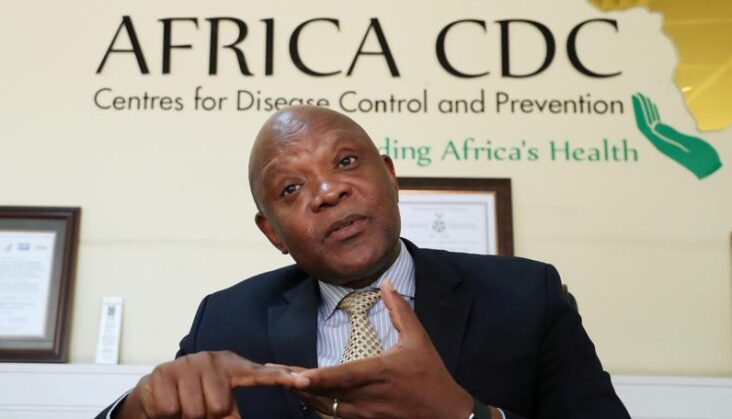A new COVID-19 strain found in Nigeria
Health authorities have announced the discovery of a new strain of the Corona Virus in Nigeria, this news comes after the UK and South Africa report new variants of the virus that appear to be more contagious, leading to new travel restrictions. According to the head of African Centre for Disease Control, there is need for people to be more cautious and adopting all the non pharmaceutical protocols this festive season.

The discovery could add to new alarm in the pandemic after similar variants of the SARS-CoV-2 virus that appear to be more contagious were announced in the United Kingdom and South Africa, leading to the swift return of international travel restrictions and other measures just as the world enters a holiday season.
Read also:Post-coronavirus global economy and international order (2)
“It’s a separate lineage from the UK and South Africa,” John Nkengasong, the head of the Africa Centers for Disease Control and Prevention (Africa CDC), told reporters on Thursday. Nkengasong said the Nigeria CDC and the African Center of Excellence for Genomics of Infectious Diseases in that country – Africa’s most populous – will be analysing more samples. “Give us some time … it’s still very early,” he said.
The alert about the apparent new variant was based on two or three genetic sequences, Nkengasong said, but that and South Africa’s alert late last week were enough to prompt an emergency meeting of the Africa CDC this week. The variant was found in two patient samples collected on August 3 and on October 9 in Nigeria’s Osun state, according to a working research paper seen by The Associated Press news agency.
Unlike the variant seen in the UK, “we haven’t observed such rapid rise of the lineage in Nigeria and do not have evidence to indicate that the P681H variant is contributing to increased transmission of the virus in Nigeria. However, the relative difference in scale of genomic surveillance in Nigeria vs the UK may imply a reduced power to detect such changes”, the paper said.
The news came as cases surge in Nigeria and South Africa. In the past week, Nigeria reported a 52 percent increase in cases and South Africa a 40 percent increase, Nkengasong said. The new variant in South Africa is the predominant one there, Nkengasong said, as confirmed infections in the country approach one million.
While the variant transmits quickly and viral loads are higher, it is not yet clear whether it leads to a more severe disease, he said.
Read also:Why your small business should deploy MDM solutions
“We believe this mutation will not have an effect” on the deployment of COVID-19 vaccines to the continent, he said of the South Africa variant.
South Africa’s health minister late on Wednesday announced an “alarming rate of spread” in that country, with more than 14,000 new cases confirmed in the past day, including more than 400 deaths. It was the largest single-day increase in cases.
The country has more than 950,000 infections and COVID-19 is “unrelenting”, Health Minister Zwelini Mkhize said. For the first time since confirming sub-Saharan Africa’s first virus case in February, Nigeria is in the spotlight during this pandemic as infections surge.
“Over recent weeks, we’ve had a huge increase in number of samples to [Nigeria CDC] reference lab,” CDC Director-General Chikwe Ihekweazu said on Twitter on Thursday.
“This has led to an unusual delay with testing, but we’re working around the clock,” with many colleagues cutting short their holidays and returning to work. Nigeria has more than 80,000 confirmed coronavirus cases.
The African continent has more than 2.5 million confirmed cases, or 3.3 percent of global cases.
Kelechi Deca

Kelechi Deca has over two decades of media experience, he has traveled to over 77 countries reporting on multilateral development institutions, international business, trade, travels, culture, and diplomacy. He is also a petrol head with in-depth knowledge of automobiles and the auto industry




